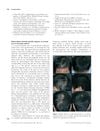Search
forProducts matching "minoxidil serum"
Tracking 6 products like 104 ZeroMino, 370 Hair Serum for Healthier and Thicker Hair 30ml, 21 Rx Hair Loss Serum, 28 Minoxidil Serum and 129 Recur Finasteride 1mg from by companies like MinoxidilMax, Amazon, Hims and Minoxidil Express. View all 6 products »
Sort by
Research
540-570 / 1000+ resultsresearch Simultaneous Quantitation of Nine Hydroxy-Androgens and Their Conjugates in Human Serum by Stable Isotope Dilution Liquid Chromatography Electrospray Ionization Tandem Mass Spectrometry
A new method accurately measures nine specific hormones in human blood.

research Research on the Balance of Thiol-Disulfide in Blood Serum in Women with Telogen Effluvium
The balance of thiol-disulfide in women with hair loss is affected but not damaged.
research Therapeutic Efficacy of Platelet-Rich Plasma Combining with Microneedling and Topical Minoxidil in Refractory Severe Androgenic Alopecia
The study investigated the therapeutic efficacy of combining platelet-rich plasma (PRP) with microneedling and topical minoxidil in treating refractory severe androgenetic alopecia (AGA). The combination therapy aims to enhance hair regrowth by leveraging the benefits of PRP, which has shown promise in previous studies when used alone or with microneedling. The study suggests that this combined approach could potentially improve outcomes for patients with severe AGA who do not respond well to standard treatments.
research Effects of Platycladus Orientalis Leaf Extract on the Growth Performance, Fur Production, Serum Parameters, and Intestinal Microbiota of Raccoon Dogs
A small dose of Platycladus orientalis leaf extract improves raccoon dogs' growth and health, but higher doses can be harmful.
research The Impact of VDR Expression and Regulation In Vivo
VDR regulation varies by tissue and is crucial for its biological functions.

research Oral Retinoids in Dermatology
Oral retinoids are effective for severe skin conditions but require careful use due to side effects.
research Androgenetic Alopecia
Minoxidil was promising for treating male and female pattern baldness in 1994, but more research on genetics and other treatments was needed.
research Treatment-Resistant Alopecia Areata: Combination Therapy with Minoxidil and Anthralin
Combining 5% minoxidil and 0.5% anthralin can help regrow hair in some severe alopecia areata patients.

research Nonsurgical Therapy for Hair Loss
Some nonsurgical hair loss treatments are effective, especially if started early.

research Formononetin: Novel Treatment for Androgenetic Alopecia
Formononetin, found in red clover, may treat hair loss with fewer side effects.

research Adipose Stem Cell Exosome: Next Generation Regenerative Aesthetics and Therapeutics for Scalp and Hair
Adipose stem cell-derived exosomes may improve hair count and scalp health, potentially outperforming current treatments like minoxidil.

research Table of Contents
The document covers various male health issues, their causes, treatments, and related conditions.
research Quantitative Analysis of Hair Luster in a Novel Ultraviolet-Irradiated Mouse Model
UV exposure reduced hair shine in mice, but minoxidil helped restore it.

research Androgenetic Alopecia in a Patient with Klinefelter Syndrome: Case Report and Literature Review
Finasteride may effectively treat hair loss in Klinefelter Syndrome patients.

research Diffuse Hair Loss: Causes, Diagnosis, and Treatment
Hair loss that spreads out can often fix itself or be treated by finding and handling the cause.

research Female Pattern Hair Loss in Complete Androgen Insensitivity Syndrome
Hair loss in women may have causes other than hormones.

research Hair: What Is New in Diagnosis and Management?
Female pattern hair loss diagnosed by scalp appearance, treated with combined therapies and targeted approaches.

research Diagnosing and Treating Hair Loss
The review suggests seeing a dermatologist for scarring hair loss and using treatments like minoxidil or finasteride for common male and female pattern hair loss.

research Azasteroids as Inhibitors of Testosterone 5α-Reductase in Mammalian Skin
Certain 4-azasteroids are effective at blocking the enzyme that processes testosterone in human skin and could help treat acne, excessive hair growth, and male pattern baldness.

research Treatment of Female Pattern Hair Loss with the Androgen Receptor Antagonist Flutamide
Flutamide improves female hair loss when other treatments fail, but may cause liver toxicity.

research Polyphenols from the Heartwood of Cercidiphyllum Japonicum and Their Effects on Proliferation of Mouse Hair Epithelial Cells
Extracts from Cercidiphyllum japonicum wood can stimulate mouse hair cell growth like common hair growth treatments.

research Treatment of Female Androgenetic Alopecia With Cimetidine
A drug called cimetidine can help treat hair loss in women by blocking androgen receptors. However, it's not the first choice and needs more research.

research Cocaine-Related Bullous Disease
Cocaine use can cause a blistering skin disease.

research Frontal Fibrosing Alopecia in Association with Sjögren's Syndrome: More Than a Simple Coincidence
Frontal Fibrosing Alopecia may be linked to autoimmune diseases like Sjögren's syndrome.

research Diffuse Pattern Essential Syphilitic Alopecia: An Unusual Form of Secondary Syphilis
Syphilis can cause hair loss and should be considered in unexplained cases.

research Successful Hair Regrowth in a Korean Patient with Alopecia Universalis Following Tofacitinib Treatment
A Korean woman with complete hair loss regrew her hair after taking tofacitinib, with no side effects.

research Alopecia Areata as a Complication of Hair Restoration Surgery
Hair transplant surgery may cause alopecia areata, a new possible complication.

research Advances in Aesthetic Therapies: Platelet-Rich Plasma Procedure for the Treatment of Alopecia
Platelet-rich plasma therapy shows promise for hair regrowth in alopecia patients.

research Writer’s Cramp Presentation of Woodhouse–Sakati Syndrome – Out of the Woods
Woodhouse-Sakati syndrome can cause writer's cramp and other varied symptoms, highlighting the importance of genetic testing for diagnosis.